
December 22
1808 Ludwig van Beethoven—born in Germany, but long resident in Vienna—premieres his Fifth Symphony, currently one of the most popular and well-known compositions in all of European classical music, at the Theater an der Wien in Vienna.
While German planes bombed England during the Battle of Britain, the English would listen to Beethoven's Fifth while hidden away in bomb shelters under the city. The irony of the British listening to a German composer to gain comfort and strength while German planes dropped bombs is something out of a Greek tragedy. The first four notes, the most famous in classical music--three short and one long--are the same as the "V" in Morse Code. "V" stood for victory. So, Beethoven's Fifth Symphony was helpful to the British during the Battle of Britain in World War II.
1876 Birth: Filippo Tommaso Marinetti Italian writer:
Italian Fascist ideologue, poet, editor, and main founder of the Futurist movement of the early 20th century. In early 1918 he founded the Partito Politica Futurista or Futurist Political Party, which only a year later was absorbed into Benito Mussolini's Fasci di combattimento, making Marinetti one of the first supporters and members of the Italian Fascist Party. He opposed Fascism's later canonical exultation of existing institutions, calling them "reactionary." He however stayed a notable force in developing the party thought throughout the regime. [For further details, Click here.]
1885 Ito Hirobumi becomes first Prime Minister of Japan: One of the Meiji era's most famous statesmen, Ito was Japan's first prime minister and served a record four times as such . . . .
Ito Hirobumi was born in the feudal province of Choshu. In 1863, in gained the title of samurai, and left the same year for England to study sciences. He returned one year later with Inoue Kaoru and warned the Choshu samurai not to go to war with the Western powers over the right of passage through the Straits of Shimonoseki. He became convinced of the necessity of adopting Western ways, and was one of the leader of the Choshu and Satsuma rebellion eventually leading to the Meiji Restoration . . . . Ito travelled to Europe again in 1882 to study foreign government systems.
Back to Japan, he established a cabinet and civil service in 1885, and became the country's first prime minister. He supervised the drafting of Japan's first constitution from 1883 to 1889 and created the Privy Council in 1888. Ito became an intimate advisor to the emperor. Ito supported the Sino-Japanese War of 1894-95, then became the leader of Japan's first political party, the Seiyukai. Following the Russo-Japanese War (1904-05), Japan occupied Korea, and Ito Hirobumi became its first Resident General, forcing King Gojong to abdicate, and thus giving Japan considerable control over Korea.
Ito was assasinated in 1909 by a Korean nationalist while on a trip to Harbin (Manchuria). This served as a pretext for the full annexation of Korea by Japan in 1910.
1890 Birth: Charles de Gaulle in Lille, France: French military leader and statesman. Prior to World War II, he was mostly known as a tactician of tank battles and an advocate of the concentrated use of armored and aviation forces. He was the leader of Free France in World War II and head of the provisional government in 1944-1946. Called to form a government in 1958, he inspired a new constitution and was the Fifth Republic's first president from 1958 to 1969. His political ideology is known as Gaullism, which left a major influence in subsequent French politics.
1894 Alfred Dreyfus—French artillery officer—is convicted of selling secrets to Germany and sentenced to imprisonment on Devil's Island. A victim of rampant anti-Semitism, the innocent Dreyfus will not be completely exonerated until 1906. [For further details, Click here.]
1900 First "Mercedes" is delivered to its buyer:
On this day in 1900, the first car to be produced under the "Mercedes" name is delivered to its buyer: Emil Jellinek, the Austrian car racer, auto dealer to the rich and famous, and bon vivant. Jellinek had commissioned the Mercedes car from the German company Daimler-Motoren-Gesellschaft. It was faster, lighter, and sleeker than any car the company had ever made before, and Jellinek was confident that it would win races so handily that besotted buyers would snap it up. (He was so confident that he bought 36 of them, paying D-M-G 550,000 marks in all.) In exchange for his extraordinary patronage, the company agreed to name its new machine after Jellinek's 11-year-old daughter, Mercedes.
In 1886, the German engineers Gottlieb Daimler and Wilhelm Maybach had built one of the world's first "horseless carriages": literally, their vehicle was a four-wheeled carriage with an engine bolted to it. In 1889, the two men built the world's first four-wheeled automobile powered by a four-stroke engine. They formed Daimler-Motoren-Gesellschaft the next year.
In 1896, Emil Jellinek saw an ad for the D-M-G auto in a German magazine. Jellinek was a rich tobacco trader and banker with a passion for fast (of course, "fast" was a relative term), flashy cars. As the story goes, Jellinek traveled to D-M-G's Cannstatt factory, charged onto the factory floor (wearing a pith helmet, pince-nez, mutton-chop sideburns and a luxurious moustache), and demanded the most spectacular car the company had. The first of his D-M-G cars was sturdy, but it could only go 15 miles per hour—not even close to fast enough for Jellinek.
In 1898, he ordered two more cars, stipulating that they be able to go at least 10 miles per hour faster than the first one could. Daimler complied; the result was the eight-horsepower Phoenix. Jellinek was impressed enough with his new cars that he began to sell them to his friends: 10 in 1899, 29 in 1900. At the same time, he needed a racing car that could go even faster than the Phoenix. Jellinek went back to D-M-G with a business proposition: if it would build him the world's best speedster (and name it the Mercedes), he would buy 36 of them.
The new Mercedes car introduced the aluminum crankcase, magnalium bearings and the pressed-steel frame, a new kind of coil-spring clutch and the honeycomb radiator (essentially the same one that today's Mercedes use). It was longer, wider, and lower than the Phoenix and had better brakes. Also, a mechanic could convert the new Mercedes from a two-seat racer to a four-seat family car in just a few minutes.
The new car was a hit. In 1902, the company legally registered the Mercedes brand mane, and in 1903, Emil Jellinek legally changed his own name to Jellinek-Mercedes. (History.com)
Note: Jellinek was the son of a Czech-Hungarian Rabbi and his Jewish wife. Jellinek's wife was of Sefaradi Jewish descent, and therefore, the "Mercedes" after whom the car was named--Jellinek's daughter--was Jewish. It is ironic that the Nazis either were unaware of the origin of the name; or were not, but not demand a new name for the car. [See, The Fuehrer's Mercedes.]
1902 Birth: Jacques-Philippe Leclerc: World War II hero; Liberator of Paris. [For further details, Click here.]
1917 World War I: Various: The Council of Flanders Russian-German peace talks begin at Brest-Litovsk:
A week after the armistice was signed between Russia and Germany and nearly three weeks after a ceasefire was declared on the Eastern Front, representatives of the two countries begin peace negotiations at Brest-Litovsk, near the Polish border in what is now the city of Brest, in Belarus.
The leader of the Russian delegation was Leon Trotsky, the Bolshevik People's Commissar for Foreign Relations. Max Hoffmann, the commander of German forces on the Eastern Front, served as one of the chief negotiators on the German side. The main difference of opinion in Brest-Litovsk was over cessation of Russian land to the Germans—the Russians demanded a peace without annexations or indemnities and the Germans were unwilling to concede on this point. In February 1918, Trotsky announced he was withdrawing the Russians from the peace talks, and the war was on again.
Unfortunately for Russia, with the renewal of fighting the Central Powers quickly took the upper hand, seizing control of most of Ukraine and Belarus. The Bolshevik hope that the workers of Germany and Austria, offended by their governments' naked territorial ambition, would rise up in rebellion in the name of the international proletariat soon vanished. On March 3, 1918, Russia accepted peace terms even harsher than those originally suggested, losing Poland, Lithuania, and the Baltic states of Estonia, Livonia, and Courland to Germany. Meanwhile, Finland and the Ukraine saw Russia's weakness as an opportunity to declare their independence. In all, Brest-Litovsk deprived Lenin's new state of one million square miles of territory and one-third of its population, or 55 million people. (History.com)
1929 Countdown to Infamy: A dispute between the Soviet Union and China over the Eastern Railway ends when both sides agree to withdraw troops.
1934 Saarland: An international group of observers arrives in the Saar to oversee the upcoming plebiscite (referendum) to determine whether the region will become part of Germany, or France.
1938 Holocaust: All Jews are forced to retire from Italian military service.
1939 Various: World War II: Express trains collide in Germany:
Two express trains collide in Magdeburg, Germany, killing more than 100 people on this day in 1939. Occurring at the outset of World War II, the accident was probably a result of the fact that the country's best rail engineers had all been conscripted into the military.
Between the end of World War I in 1918 and 1939, German trains became well-known for their efficiency. However, as the Second World War began, a large part of the rail system and many of its employees were put to work for the military. In order to keep some civilian trains going, other people, including retired employees, were brought in to run the system. For these new employees, training was often minimal and rushed.
On the morning of December 22, an express train to Cologne filled with Christmas travelers made an unscheduled stop at the Genthin station near Magdeburg. The express train to Berlin came down the same tracks and ignored a stop signal. It was going full speed when it crashed straight into the rear car of the Cologne train.
The Cologne train's three rear coaches were demolished by the impact. In addition, the locomotive of the Berlin express derailed and took five if its coach cars with it. The official death toll was 132 people, with 109 serious injuries. However, the numbers may have been kept artificially low by the Nazi government, which had initially attempted to keep the story from being reported by the press. (History.com)
1940 Antisemitism: USA: New York Mayor Fiorello LaGuardia announces that in the preceding six months 238 arrests have been made in NY for inflammatory and anti-Semitic street speeches as well as other disturbances.
1941 World War II: Various: Pacific: Churchill and Roosevelt discuss war and peace: On this day, British Prime Minister Winston Churchill arrives in Washington, D.C. for a series of meetings with President Franklin Delano Roosevelt on a unified Anglo-American war strategy and a future peace.
Now that the United States was directly involved in both the Pacific and European wars, it was incumbent upon both Great Britain and America to create and project a unified front. Toward that end, Churchill and Roosevelt created a combined general staff to coordinate military strategy against both Germany and Japan and to draft a future joint invasion of the Continent. Roosevelt also agreed to a radical increase in the U.S. arms production program: the 12,750 operational aircraft to be ready for service by the end of 1943 became 45,000; the proposed 15,450 tanks also became 45,000; and the number of machine guns to be manufactured almost doubled, to 500,000.
Among the momentous results of these U.S.-Anglo meetings was a declaration issued by Churchill and Roosevelt that enjoined 26 signatory nations to use all resources at their disposal to defeat the Axis powers and not sue for a separate peace. This confederation called itself the "United Nations." Lead by the United States, Great Britain, and the Soviet Union, all 26 nations declared a unified goal to "ensure life, liberty, independence and religious freedom, and to preserve the rights of man and justice." The blueprint for the destruction of fascism and a future international peacekeeping organization was born. (History.com)
Yugoslavia: Tito establishes the first Proletarian Brigade.
1942 Various: Church and Reich: Death: Eleven members of the Red Orchestra:
On this date in 1942, eleven members of a Berlin-based anti-Nazi resistance circle were executed at Ploetzensee Prison: five by hanging, six by guillotine.
These members of the group organized around leftist Luftwaffe communications officer Harro Schulze-Boysen and intellectual Arvid Harnack were one of three Soviet intelligence nodes all of whom were confusingly designated Die Rote Kapelle.
That designation, assigned by Nazi intelligence rather than the networks themselves, has basically stuck and colored their postwar reputation with the anti-Communist politics of the Cold War. [For further details, Click here.]
1943 World War II: Italy: The 2nd Canadian Brigade fights a house to house battle against the German 1st Paratroop Division in Ortona.
1944 World War II: Various: Churchill to Alexander: There is no question of us embarking in any military operations away from the Athens-Piraeus area. We must however have a military foundation there on which a Greek Government of some kind or other can function . . . . Thereafter we do not intend to stay in Greece except for such reasonable period as may be necessary to let the new government, whatever it is, gain for itself a National Army or Militia, in the hope that we may be able to conduct elections, plebiscites, etc. We can achieve no political solution while negotiating from a position of weakness and frustration. The political field in the present circumstances can only be entered by the gates of success.
Battle of the Bulge: The Germans demand the surrender of American troops at Bastogne, Belgium: By December 21 the German forces had surrounded Bastogne, which was defended by the 101st Airborne Division and Combat Command B of the 10th Armored Division. Conditions inside the perimeter were tough . . . . most of the medical supplies and personnel had been captured. Despite determined German attacks, however, the perimeter held. When General Anthony McAuliffe was awakened by a German invitation to surrender, he gave a reply that has been variously reported and was probably unprintable. There is no disagreement, however, as to what he wrote on the paper delivered to the Germans: "NUTS!" That reply had to be explained, both to the Germans and to non-American Allies. Rather than launching one simultaneous attack all around the perimeter the German forces concentrated their assaults on several individual locations attacked in sequence. Although this compelled the defenders to constantly shift reinforcements in order to repel each attack, it tended to dissipate the Germans' numerical advantage. [For further details, Click here.]
Churchill to Smuts:
Montgomery and also we here in England have, as you are aware, pressed for several months for the emphasis of the advance to the north of the Ruhr, and have on repeated occasions urged that our strength did not enable us to undertake two major offensives such as the one against Cologne and that across the Saar. In spite of appalling weather conditions our friends, however, pushed on confidently, and were very much spread from north to south when the enemy began his counter-stroke. I spoke to Eisenhower on the telephone during the afternoon of the 20th and suggested that he give to Montgomery the whole command north of the breakthrough, and to Omar Bradley everything south of the breakthrough, keeping control himself of the concerted operation. He replied that he had issued orders exactly on these lines in the morning. Montgomery now has under his command eighteen American divisions plus his Twenty-First Army Group comprising about sixteen divisions. He is forming substantial reserves and is assuming entire charge of the battle in the area of his command. He should be able to intervene heavily. There is nothing so far to suggest that the Germans have the power to mount a full-scale offensive against the Twenty-First Army Group's main front. 2. Matters are not by any means so clear south of the gap. The Americans are putting up stubborn resistance but there is a good deal of disorganization. Naturally an army has been gathered from the Metz region to march north under Patton. The position of the enemy does not strike me as good. As usual I am optimistic; the tortoise has thrust his head out very far.
War in the Pacific: The submarine Swordfish departs Pearl Harbor for Japan. [For further details, Click here.]
1947 Italy: The Constitution of the Italian Republic is enacted by the Constituent Assembly.
1958 Death: Leon Feuchtwanger at 74, German/US philosopher:
The neglected German-Jewish author Leon Feuchtwanger is one of the most stalwart defenders of Josephus' blighted reputation. Feuchtwanger's fiction trilogy, approximately based on Josephus discernible life history, is considered by many Josephan scholars to be in the forefront of the modern tendency towards moderation of the latter's conventional traitor image. In Germany, paperback editions of Feuchtwanger's novels have been enjoying a renaissance. They have sold close to a million copies from the late 1970s to the present day. No such recognition has been forthcoming among the world's English-speaking population. Even among those English-speaking commentators that have mentioned Feuctwanger's work, the Josephus trilogy is overlooked. Yet, knowledgeable specialists generally agree that Feuchtwanger's depiction of the noted Jewish historian is his finest achievement.
Feuchtwanger was a German Jew who wrote his works in German even after he resettled among LA's German expatriate arts colony in 1941: all refugees from Hitler's regime. His Josephus, (the German title was Der Juedische Krieg, after Josephus own semi-fictional history) the first episode of the trilogy, reflects his determination to make the historical novel (his forte) relevant to contemporary issues. Josephus Flavius is a wonderful vehicle to illustrate the modern Jew's schizophrenia. [For further details, Click here.]
1970 Holocaust: Franz Stangl: Former SS Commander of Treblinka, is sentenced to life imprisonment.
1971 Various: Waldheim elected UN Secretary-General: The United Nations General Assembly votes to ratify the U.N. Security Council's nomination of Austrian diplomat Kurt Waldheim to lead the U.N. Waldheim went on to serve two terms as head of the world body, leaving the post in 1982.
In 1986, during a campaign for the Austrian presidency, documents were uncovered revealing that he had served as an intelligence officer in German army units that had committed war atrocities in the Balkans during World War II. Waldheim, who had previously claimed that he spent much of the war in Vienna, admitted that he had lied about his wartime record but denied any knowledge of atrocities. He went on to win the Austria presidency despite the allegations but became an international pariah.
After the annexation of his country by Nazi Germany in 1938, Waldheim was conscripted into the German army and served on the Russian front until 1941, when he was wounded. Waldheim claimed that he spent the rest of the war studying law in Vienna, but it is now known that he was an interpreter and intelligence officer for German army units stationed in Nazi-occupied Yugoslavia and Greece from 1943 and 1945. Waldheim's units engaged in brutal reprisals against Yugoslav partisans and civilians and deported most of the Jewish population of Salonika, Greece, to Nazi death camps. There is no evidence that he personally killed, tortured, or deported anyone, but he did provide the logistical and intelligence support that enabled others to do so. He won praise and promotion from his Nazi superiors, and evidence indicates that on one occasion he ordered a group of prisoners shot.
After World War II, Waldheim returned to Austria and entered the diplomatic service. He led Austria's first delegation to the United Nations in 1955 and served as the Austrian ambassador to Canada in the late 1950s. He then worked in the Austrian Foreign Ministry and in 1964 became his country's permanent representative to the U.N. In 1968, he became minister of foreign affairs in the Austrian government and in 1970 returned to the U.N. as permanent representative. In 1971, he was an unsuccessful candidate to Austria's presidency, a largely ceremonial post, on the conservative People's Party ticket. In December 1971, he was chosen by the U.N. Security Council to be U.N. secretary-general, and on December 22 the General Assembly approved the nomination.
As head of the United Nations, Waldheim was an efficient but not particularly dynamic world leader. He made visits to Cyprus and the Middle East to help resolve conflicts there and coordinated a massive relief effort to Bangladesh, devastated by war and natural disaster. In 1976, he was reelected. During his second tenure as head of the U.N., he attempted, with little success, to end the Iran-Iraq War and the Sino-Vietnam War and to gain the release of American hostages in Iran. In 1981, a third term was blocked by a Chinese veto.
In 1986, Waldheim ran for Austria's presidency again, but the campaign was heavily tainted by reports of his possible participation in war crimes during World War II. Waldheim admitted that, contrary to earlier statements he had made about his past, he had indeed served in the Balkans during the war but denied any knowledge of atrocities. This denial, contradicted by the evidence, was evidently acceptable enough for the Austrian electorate, and in June 1986 they voted to make him Austrian president.
Waldheim's tenure as Austrian head of state was marked by a period of international isolation for the country, and he chose not to run for reelection in 1992. In 1987, the United States barred him from entering the country as a private citizen because of his war record. Details of the investigative report that the U.S. Justice Department used in making this decision were first made public in 1994, implicating Waldheim with a far greater involvement in war-time atrocities than was previously suspected. (History.com)
Soviet Union attacks Chinese policy toward Vietnam:
The Soviet Union accuses China of backing U.S. policies in Vietnam, an accusation that illustrates the growing rift between the two communist superpowers. China, which had previously taken a hard line toward negotiations between Hanoi and Washington, softened its position by endorsing a North Vietnamese peace plan for ending the war. Although the peace proposal was unacceptable to the United States, the fact that China advocated negotiations between Hanoi and Washington was significant. The Soviet Union, whose relations with China were already deteriorating, was highly suspicious of what they rightfully perceived as a "warming" in Sino-American relations. This suspicion only grew stronger in February 1972, when President Richard Nixon visited China. (History.com)
1989 Various: It is located west of the city center at the junction of Unter den Linden and Ebertstrasse, immediately west of the Pariser Platz. It is the only remaining gate of a series through which Berlin was once entered. One block to the north stands the Reichstag building. The gate is the monumental entry to Unter den Linden, the renowned boulevard of linden trees which formerly led directly to the city palace of the Prussian monarchs. It was commissioned by King Frederick William II of Prussia ["The Soldier King"] as a sign of peace, and built by Carl Gotthard Langhans from 1788 to 1791. Having suffered considerable damage in World War II, the Brandenburg Gate was fully restored from 2000 to 2002 by the Stiftung Denkmalschutz Berlin (Berlin Monument Conservation Foundation). Today, it is regarded as one of Europe's most famous landmarks.
Romanian government falls:
The Romanian army defects to the cause of anti-communist demonstrators, and the government of Nicolae Ceausescu is overthrown. The end of 42 years of communist rule came three days after Ceausescu's security forces opened fire on demonstrators in Timisoara. After the army's defection, Ceausescu and his wife fled from Bucharest in a helicopter but were captured and convicted of mass murder in a hasty military trial. On December 25, they were executed by a firing squad.
Ceausescu, ruler of Romania since 1965, had resisted the liberalization of the USSR and other Soviet bloc countries in the late 1980s. By the time of his government's downfall in 1989, Romania was the most repressive and economically backward country in Europe. (History.com)
1990 Lech Walesa sworn in as president of Poland:
Lech Walesa, well-known Polish labor leader and winner of the Nobel Peace Prize, is sworn in as the first noncommunist president of Poland since the end of World War II. His victory was another sign of the Soviet Union's lessening power and communism's waning influence in Eastern Europe. [For further information, click here]
Edited by Levi Bookin (Copy editor) Click to join 3rdReichStudies
FAIR USE NOTICE: This site may contain copyrighted material the use of which has not always been specifically authorized by the copyright owner. We are making such material available in our efforts to advance understanding of historical, political, human rights, economic, democracy, scientific, environmental, and social justice issues, etc. We believe this constitutes a 'fair use' of any such copyrighted material as provided for in section 107 of the US Copyright Law. In accordance with Title 17 U.S.C. Section 107, the material on this site is distributed without profit to those who have expressed a prior interest in receiving the included information for research and educational purposes. If you wish to use copyrighted material from this site for purposes of your own that go beyond 'fair use', you must obtain permission from the copyright owner.
Please note that the list-owner and the moderators are not responsible for, and do not necessarily approve of, the random ads placed on our pages by our web server. Unfortunately, they are the price one pays for a 'free' website.
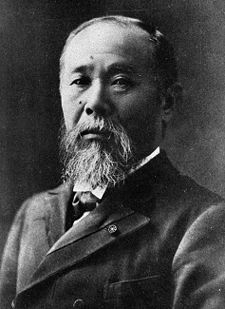
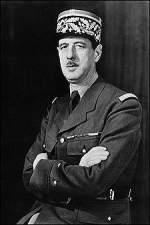
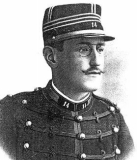
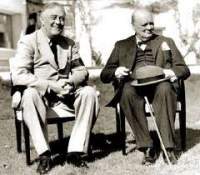

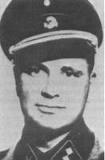
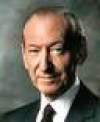
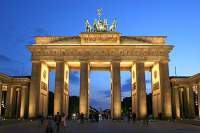
levi.bookin@gmail.com






